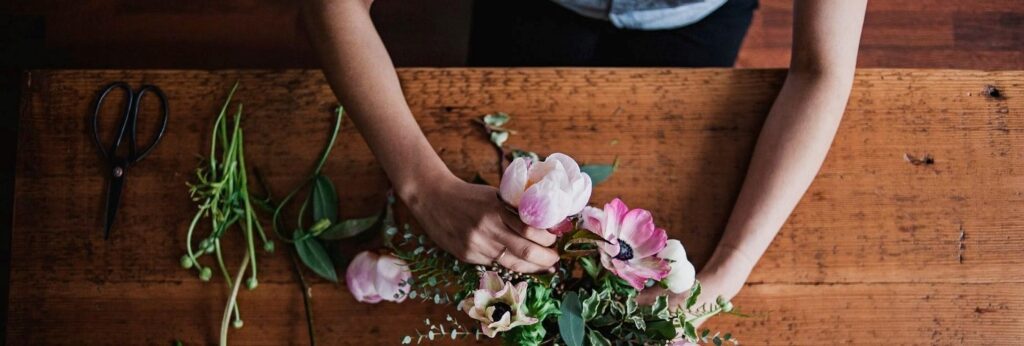Considering we spent almost $3.2 million on flowers for Valentine’s Day last year, a TAFE NSW floristry expert is giving up his top tips to create a hand made bouquet in under 15 minutes without breaking the bank. TAFE NSW floristry head teacher David Berger has more than 35 years’ experience in the floristry industry and is a judge at the Interflora World Cup, an international floral design competition.
His advice this Valentine’s Day is to ditch the traditional bouquet of roses and try something more seasonal:
Roses have always been the Valentine’s Day flower of choice, with each colour symbolising something different. For instance, red roses symbolise passion while yellow represents friendship and dark pink is gratitude.
Mr Berger said it is important to know who you are making the bouquet for and reflect this in the flower colours you choose.
“Keep in mind that there is more demand for roses on Valentine’s Day than Australia can supply, which is why we see prices rise leading up to February 14,” Mr Berger said.
“Support local business by purchasing your flowers from a local florist. Locally grown flowers have much stronger perfume and last longer than imported blooms.”

Consider using other flowers that look and smell just as great but last longer.
Mr Berger suggested locally grown flowers like Gerberas or Oriental lily and Hypericum Berry, which are long lasting alternatives for the February season.
Native Australian foliage like Grevillea and Pink Rock Lily are also a good option because they are year round flowers
“A growing trend is for seasonal bouquets that incorporate a few roses rather than the traditional dozen rose bouquet,” he said.
Swapping plastic wrapping and foam for a glass vase will minimise waste. Vases are relatively cheap to buy and will speed up the bouquet making process, all while saving the environment.
Start with two types of foliage at the base of the vase. Mr Berger’s go-to foliage is magnolia leaves, camellia leaves and gymea leaves, which is an Australian native.
Anything with a flat leaf is ideal but don’t be afraid to add texture by pairing it with foliage like copper glow.
“Place the central flowers slightly higher and angle the flowers to achieve a domed effect. Don’t forget to remove any damaged petals so the flower can fully open.
“Place the roses higher than the other flowers so they take pride of place in the finished design,” Mr Berger said.
A handy tip, Mr Berger said, is to turn the vase when placing flowers to give a symmetrical shape to the bouquet and make sure all the stems are below the water level in the vase.
His secret to keeping flowers looking fresh for longer is to clean all foliage from the stems that will rest under the water level in the vase to avoid them getting soggy and remember to change the water in the vase every two days.
“Cutting the stems of the bouquet on a 45 degree angle will ensure the flowers absorb the maximum amount of water possible.”
Lastly, Mr Berger said to place the finished vase away from strong light and drafts to lengthen the life of the blooms.
Now your Valentine’s bouquet is ready to gift to that someone special.
TAFE NSW was recently awarded the 2019 School of Floristry award at the annual Flower Growers Ball, for the third year in a row.
To find out more about studying floristry at TAFE NSW this semester, visit www.tafensw.edu.au, or call 131 601.
